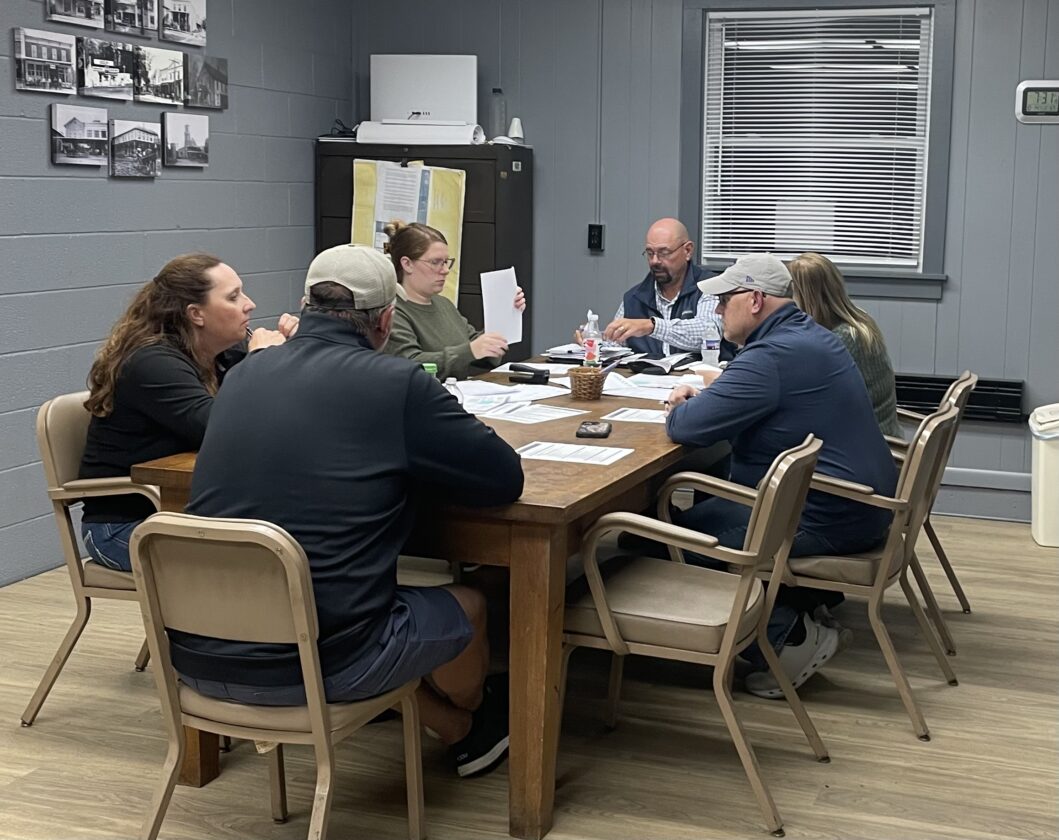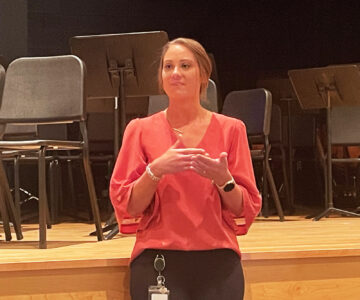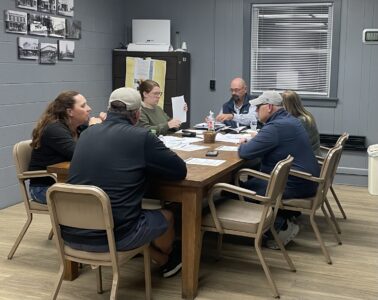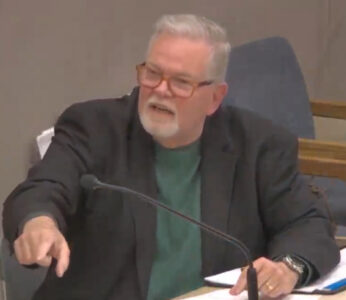Clymer Tax Increase At 7.75%

The town of Clymer was presented with the preliminary budget at the October meeting, looking at an around 7.5% tax increase. P-J photo by Sara Holthouse
CLYMER — Budget season continues throughout Chautauqua County, including in the town of Clymer, where the preliminary budget for 2026 was presented to the Town Board at the October meeting and is currently looking at just under a 7.5% tax increase.
Budget officer Rilley Enlow presented the budget to the town board, reviewing the town’s appropriations, revenues, and unexpended fund balance, along with the funds for the highway department. Town Supervisor Brian Willink said there were four big line items the town needed to make sure were included for the 2026 budget: health insurance which went up 18%, retirement, employee rates, and utility costs, which all also increased.
Willink noted that the increases in these four areas are the main reason the town has to go over the 2% tax levy increase, which he added he was hoping not to do, but said they had to without cutting a lot of things on what he described as an already lean budget. Additional revenues will be coming into the town in the form of sales tax, revenue from the Town Clerk’s office, and new revenues from the water department and water project thanks to the pipeline tax, meter rate and monthly meter charge.
The water project itself is also something the town needs to budget for next year.
“Our bond is going to start to come due for the water system, our three and a half million dollar bond and the first payment will be due next October,” Willink said. “We have three options to pay that first payment. There’s what they call a minimum, mid-line and maximum.”
The minimum the town will need to pay in the first payment is $15,000. The mid-line is $50,000 and the maximum $112,500 which is the estimated annual payment for the next 30 years. Willink said he originally thought the town should begin with the mid-line payment to begin working away at the debt, but the engineers convinced him that the minimum payment would be the best option for the town right now. He said the town does not currently know the amount of water that will come through the new system with the new meters, so they do not know what the revenue from that will look like, and the minimum payment will give the town time to get the rates in place for the increase in the pipeline tax and meter fees and get the money from that going into the system. Rates will most likely still need to be adjusted next year, and the billing cycle is still set to most likely change to quarterly.
Enlow noted the town is also still paying on a bond for the pump house, though this will be the last year they need to pay.
“The money we were paying on the pump house can be moved to the water system going forward, so that will help,” Willink said. “Either way, water users who are used to paying $75 every six months will be kind of rudely awoken when they start seeing a $25 charge per month, whether they put any water through it or not.”
The meter is $25 a month for everyone, and the rate includes water usage per 1,000 gallons that goes through the system on top of that. The per 1,000 rate will not change at this point as Willink said they expect water usage to go up with the new meters, which are expected to work faster and bring more accurate readings. Highway Superintendent Scott Triskett said 165 of these new meters have been installed, with somewhere around 60 left. With the new training and system 131 meters were read within 20 minutes.
With all of this together, Willink said the total tax increase for the town’s budget is just short of a 7.5% tax increase.
“It’s pretty lean, we didn’t come up with any new fangled investment opportunities or anything,” Willink said. “With line items and things we need to incorporate, it’s pretty much trying to hold the line on things that we’re doing and when it’s all said and done it’s 7.5%.”
October’s meeting was the first budget reading, and the town will review the budget throughout the next month and return to vote on it following a public hearing to approve going over the 2% tax levy increase at the next meeting on Nov. 5 at 7:30 p.m.




